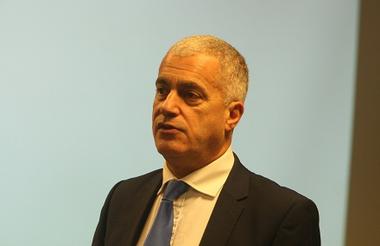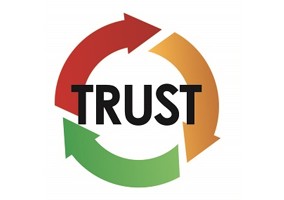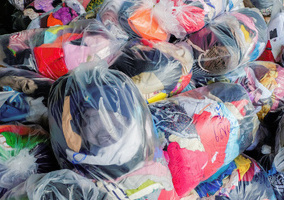Charities can no longer afford to ignore the operational practices of their supply chain, the Charity Retail Association has warned.
Speaking at the launch of the CRA’s kitemark scheme for firms that sell unsold goods from charity shops yesterday, chief executive Robin Osterley said bad practice by a commercial partner could damage a charity’s reputation.
He said: “There is a potential reputational risk for charities who are dealing with unknown quantities in terms of the companies they selling clothing and other things to.
“It is no longer possible for anybody, never mind charities, to just bury their heads in the sand like ostriches and say ‘we no longer care what is going on out there’.
“Actually, it behoves all of us to understand who we are dealing with and how they are behaving.”
Modern slavery
Osterley said his organisation, which has almost 400 charity retail members, has seen examples of partner companies practicing what could be described as modern slavery.
He said: “We have got examples of people we have been selling clothing to who have been in breach of horrendous health and safety conditions, who have been keeping staff accommodated in porta cabins in car parks, who have been paying well underneath the minimum wage.
“I mean stuff that it would not be an exaggeration to say is modern slavery.”
Only organisations with a turnover of more than £36m are currently required to provide a modern slavery statement each financial year.
Osterley added that the vast majority of textile recyclers and other recyclers have good practices but said it was currently difficult for charities to distinguish between the “good guys” and the “bad guys”.
He said: “This is the simple question, if you are dealing with good guys your reputation is intact, if you are dealing with bad guys whether you know it or not you are likely at some point down the track to find yourselves with reputational issues.
“That is the first and most important reason why the Charity Retail Association is backing this.”
All firms accredited by 2020
The Trader Recycling Universal Standard (TRUST) was launched this week, and requires companies to pay £2,500 to be accredited every two years.
A website for the scheme has gone live and an administrator has been hired, with the first assessments expected to start next month and to take about three or four weeks each.
Osterley said he hoped most firms would be accredited over the coming months, adding that the CRA aims only to work with accredited firms by the end of 2020.
He also said that in future the CRA would not offer support to charities who have having trouble dealing with an unaccredited company.
The Charity Shops Survey 2019 will be published alongside the October edition of Charity Finance magazine.
|
Related articles












